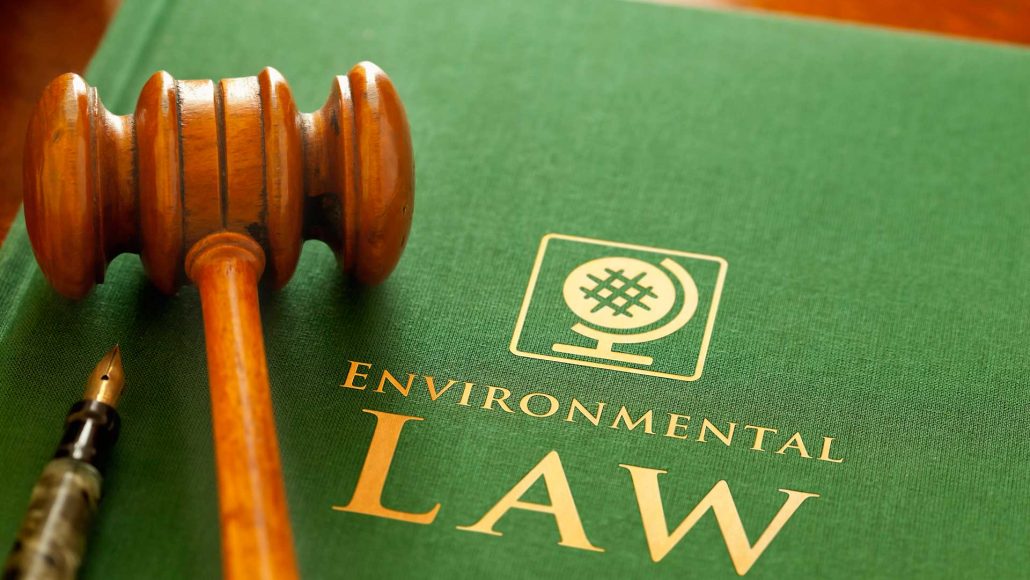INTRODUCTION
The Government of Tanzania has on 17th May, 2019 published the Environment Management (Prohibition of Plastic Carrier Bags) Regulations, 2019. The regulations which comes into effect on 01st June, 2019 are meant to prohibit use of polythene bags forever.
The decision to ban plastic bags follows the move also in other East African countries that have in recent years abolished the use of plastic bags due to adverse effects of utilization of plastic carrier bags in both human health as well as environment.
In addition to the Regulations, the Government also issued additional guidelines on 23rd May, 2019 for the enforcement of order. The guidelines stipulate the operational approach including prohibiting the use of necessary force, detention or abuse in the course of implementation.
PROHIBITION
The regulations put a total ban on the import, export, manufacturing, sale, storing and use of plastic carrier bags regardless of their thickness. Further, the regulations prohibit sell or offer for sale beverages or other commodities wrapped in plastics unless the nature of such commodities require wrappings by plastics. These regulations also prohibit any entity or authority from licensing or registering or issuing a permit to any person intending to import, export, manufacture or sell plastic carrier bags that have been prohibited by these Regulations.
OFFENCES AND PENALTIES
In enforcing the ban, the regulations have laid down a strenuous penalties and sanctions against any person who imports, exports, manufactures, sells, stores, distributes, supplies, possesses and uses plastic bags and plastic wrappings. Specifically regulation 8 provides that:-
- Manufacturing or importation is punishable by a fine between TZS 20Million and TZS 1 Billion or to imprisonment term of up to 2 years or both.
- Exportation, is punishable by a fine between TZS 5 Million and TZS 20 Million or to imprisonment for up to 2 years or to both
- Storing, Supplying and Distributing is punishable by a fine between TZS 5 Million and TZS 50 Million or to imprisonment for up to 2 years or to both.
- Selling is punishable by a fine between TZS 100,000 and TZS 500,000 or to imprisonment for up to 3 months or to both.
- Possessing and Using is punishable by a fine between TZS 30,000 and TZS 200,000 or to imprisonment for up to seven days or to both.
In addition to the penalties imposed, the regulations provides that any imported prohibited plastic carrier shall be repatriated to the country of export at the cost of the importer. Also, any found plastic carrier bags found shall be confiscated and disposed of or recycled, at the cost of the offender (Regulation17 and 18).
Moreover, Courts have been empowered to impose additional penalties and orders upon conviction including:-
- forfeiture of plastic carrier bags;
- closure of the production unit;
- cancellation of licenses; or
- impose community service
EXCEPTIONS TO THE PROHIBITION
Regulation 9 provides for the exception on the ban. The exception applies to plastic or plastic packaging for medical services or industrial products or construction industry or agricultural sector or food processing or sanitary and waste management. Essentially the regulations have laid down the categories of allowable plastic or plastic packaging to be used. These are specifically defined in the regulations as:-
- “plastic packaging for agricultural sector” means plastic wrapping or casing or sheets used for mulching or seedling or greenhouse or reservoir and irrigation system or crop collection, storage and transportation;
- “plastic packaging for construction industry” means plastic wrapping, casing or sheets used for handling construction materials or damp-proof in buildings or pipes or cables or tiles or storage tanks or temporary structures or insulation or any other related functions;
- “plastic packaging for food processing” means plastic wrapping or casing or container prepared in advance to preserve quality of foodstuff or protect foodstuff from contamination with other goods or extraneous matter, with a tamper proof seal or labeled to describe the product before sale or distribution or offer;
- “plastic packaging for industrial products” means plastic wrapping or casing or container prepared in advance, to preserve quality of industrial goods or protect from contamination with other goods or extraneous matter, with a tamper proof seal or labeled to describe the product before sale or distribution or offer;
- “plastic packaging for medical services” means plastic wrapping or casing or container used in the furnishing of medicine or medical or surgical treatment or nursing or hospital services or dental services or optometrical services; or complementary health services; or any other necessary services of like character whether or not contingent upon sickness; and
- “plastic packaging for sanitary and waste management” means large sized plastic carrier bag solely for collecting and handling of solid waste, with a minimum thickness and size to be prescribed by order of the Minister
Regulation 10 an 11 requires that any person who imports, exports, manufactures, sells, stores, distributes, supplies, possess and uses plastic packaging exempted under these Regulations must comply to the standards requirements of the Tanzania Bureau of Standards (TBS). More so, the waste created from the said plastic packaging must be managed and accordingly disposed off in accordance to environmental Management guidelines.
COMPLIANCE AND ENFORCEMENT
In achieving the total ban as envisaged by the regulations, the Compliance and enforcement has been charged to numerous government authorities including the National Environmental Management Council, the ministry responsible for Trade and Industry, Tanzania Revenue Authority, The Tanzania Ports Authority, The Tanzania Airports Authority, The Police Force, The Tanzania Food and Drugs Authority, Chief Government Chemist Laboratory Agency, Tanzania Bureau of Standards, Immigration Department and such other relevant government organs. Moreover, the Local Authorities have in addition been charged with the responsibility of public education and awareness in enforcing the compliance.
GENERAL PROVISIONS
- The regulations imposes the new compulsory requirements for manufacturers and suppliers of products contained in plastic bottles, to set up and operate in a take back system in collecting their respective waste plastic bottles for recycling purposes at no additional price to the user. This means, all Plastic bottles suppliers would be required to set up system to recollect the used bottles for recycling. Such measure would not be done at any cost to the user of the bottle.
- Law enforcement Authorities have been empowered under the regulations (Regulation 20) to compound any offences i.e. to allow any person who is willing to pay the fines as penalty instead of imprisonment.
ADDITIONAL GUIDELINES
- Further to the regulations issued by the Minister, on 23rd May, 2019 the Vice President Office issued additional guidelines on the enforcement of the ban on Plastic bags. The guidelines provide for the operational approach and manner of conduct by the law enforcement agencies.
- Clearly the guidelines provide that, law enforcement agencies must use wisdom and categorically prohibit the use of force including beating, abuse and arbitrary arrest.
- The guidelines states that, inspection for plastic bags would be made in shops, markets, supermarkets, warehouses, all point of entry in the country, factories and all other areas selling goods. Law enforcers conducting the inspection are required to introduce themselves and must produce identification documents before any investigations.
- Moreover, the Guidelines prohibits Enforcement Agents from entering individual premises and homes or stopping vehicles to inspect the plastic bags. However, where vehicles are stopped for inspection for any other reasons, and the owner found in possession of the consignment of plastic bags then appropriate penalty would be imposed as provided for under the regulations including handing over the consignment for disposing.
- Any person found liable for selling, storing or using the plastic bags will be instructed to where to dispose off the consignment but also be liable to pay the fine as provided for under the law. However, a person will be required to sign a prescribed form to admit the offence and given time to pay the fine. Failure to pay as per the prescribed time, criminal charges will be levied to the offender.
- On payment of the fine, the guidelines require the person to be issued with the Government receipt as evidence of the payment.
- Finally, the guidelines warn and directs that, anyone who obstructs or sabotage or fails to provide required support in the inspections and enforcement of the Regulations will be dealt in accordance with other laws of the country.
DOWNLOAD FIN & LAW -Client Update, MAY 2019 – Tanzania Bans Plastic Carrier Bags
DISCLAIMER: THIS PUBLICATION HAS BEEN PREPARED FOR GENERAL INFORMATION ON MATTERS OF INTEREST ONLY. IT DOES NOT CONSTITUTE LEGAL OPINION OR PROFESSIONAL ADVISE ANYHOW. YOU SHOULD NOT ACT UPON THE INFORMATION CONTAINED IN THIS PUBLICATION WITHOUT OBTAINING SPECIFIC PROFESSIONAL ADVISE AND GUIDANCE. NO REPRESENTATION OR WARRANTY (EXPRESS OR IMPLIED) IS GIVEN TO THE ACCURACY OR COMPLETENESS OF THE INFORMATION CONTAINED IN THIS PUBLICATION. FIN & LAW DOES NOT ACCEPT OR ASSUME ANY LIABILITY, RESPONSIBILITY OR DUTY OF CARE FOR ANY CONSEQUENCES, LOSS OR INCONVENIENCE FOR ANY CONSEQUENCES OF YOU OR ANYONE ELSE ACTING OR REFRAINING TO ACT, IN RELIANCE ON THE INFORMATION CONTAINED IN THIS PUBLICATION OR ANY DECISION BASED ON IT.



